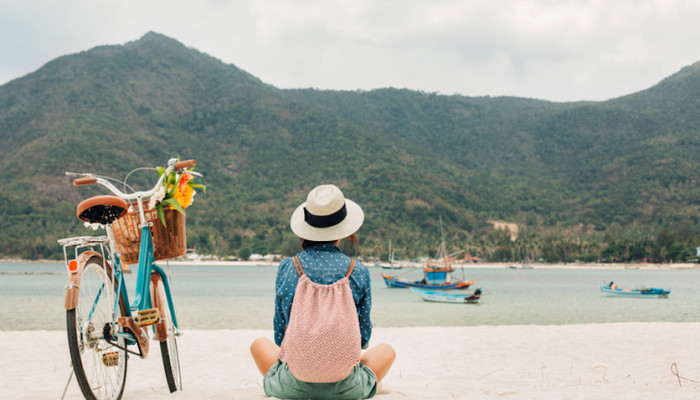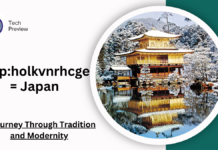What is sustainable tourism? The Global Development Resource Center defines sustainable tourism as “an industry which attempts to make a low impact on the environment and local culture, while helping to generate income, employment, and the conservation of local ecosystems.”
More and more, people devoted to the exploration of exotic cultures, climates and cuisine are becoming aware of the ways in which tourism can erode a country’s social and cultural well-being—not to mention the environmental havoc the tourism industry has traditionally wreaked on the world’s most fragile ecosystems. Air travel alone compromises the health of the very planet. Responsible travelers, therefore, have started exploring ecotourism and other non-harmful, sustainable holiday options.
Here are five can’t miss-opportunities that will allow travellers to enjoy some of the most beautiful and culturally stimulating places on the planet while helping to sustain and even—in some cases—improve them.
Ecotourism Meets Cultural Conservation in New Zealand and Costa Rica
This New Zealand company was named the overall winner in the 2009 Virgin Holidays Responsible Tourism Awards. Whale Watch Kaikoura was founded by four Maori families and makes it a priority to conduct responsible tours with a minimal impact on the environment.
Whale Watch, according to its website, “cherishes the twin (Maori) values of hospitality to visitors and reverence for the natural world.” According to the judges, the success of this company “demonstrates the local Maori community can not only grow a considerable tourism business, but, more significantly, use that business to buy back their ancestral land for the benefit of the indigenous people and their cultural identity.”
Consorcio Por La Mar in Costa Rica offers what it calls “Responsible Artisanal Fishing Guided Tours.” The company is located in Tarcoles, Garabito, in the Central Pacific coast of Costa Rica and offers visitors the opportunity to experience and learn about small-scale fishing practices and the ways in which the company works to sustainably manage their coastal marine resources. They offer four different fishing packages and state that their mission is to showcase the craft of the artisanal fisherman “as a dignified way of life that contributes to biological and cultural conservation.”
Community-building Travel in India and Ethiopia
Village Ways is a group of community-owned and managed projects offering intimate holidays that are hosted and administrated by none other than the villages themselves. Packages include the Indian Himalayan villages of Saryu and Binsar as well as the communities of Tigray and Wollo in the Ethiopian Highlands. This initiative has won several awards for its sustainable and responsible practices including the 2008 Times Green Spaces Award, a 2007 Award from he British Guild of Travel Writers, and 2nd place in the Guardian Travel Awards.
A key feature of the Village Ways enterprise, according to its website is its “strict goals for community-wide support and equitable profit allocation.” The result is a tourism initiative that actually helps instead of hurts.
Ethical Volunteering—People and Places
The “voluntourism” industry is known for irresponsible and exploitive business practices when it comes to both its clients and the communities it ostensibly claims to support. UK based company People and Places has shown itself to be committed to full transparency when it comes to reporting the money their volunteers pay, and they work to ensure that the people who pay money to engage with given community do not end up becoming a burden or imposition on the lives of the people they hope to assist.
To this end, the company makes sure volunteers go where they are most needed, without ever supplanting local labour. Would-be volunteers looking for legitimate opportunities to make a difference overseas can rest easy should they choose to work through this company. According to the administrators of The Responsible Tourism Award, “They have taken the ground breaking step of having their work externally audited and publishing it online.”
A Green Getaway in Los Angeles—Venice Beach Cottages
Then there are those of us who are simply looking for an eco-friendly means of enjoying the sights and sounds of a fabulous US city like, say, Los Angeles. The hotel business, try though it might, tends not to be the most environmentally-conscientious of industries. What other options might the City of Angels have to offer the tourist wanting to leave a small footprint, even in smoggy, car-dependant LA?
Venice Beach Cottages offers all the mod-cons and zero guilt. Each cottage, which has been restored using organic and repurposed materials, is solar powered and all building materials, including paint, are non-toxic. The hot tub—yes, hot tub—is energy efficient and cleaned by a system that uses ozone and UV light. The cottages are owned by Cynthia Foster and Karel Samsom, an environmental economist and an actor/artist couple who describe the business as “an entrepreneurial a dream come true.”
Sustainable tourism is clearly a growth industry, helping to foster a more mindful approach to travel on the part of tourists, and more ethical business practices on the part of touring companies.









